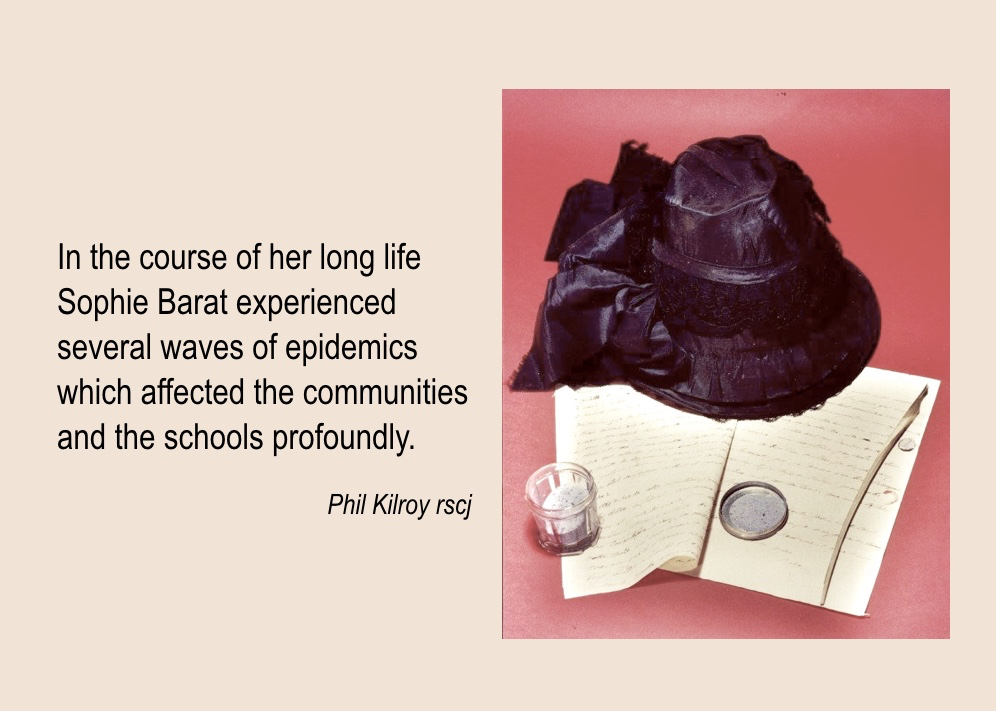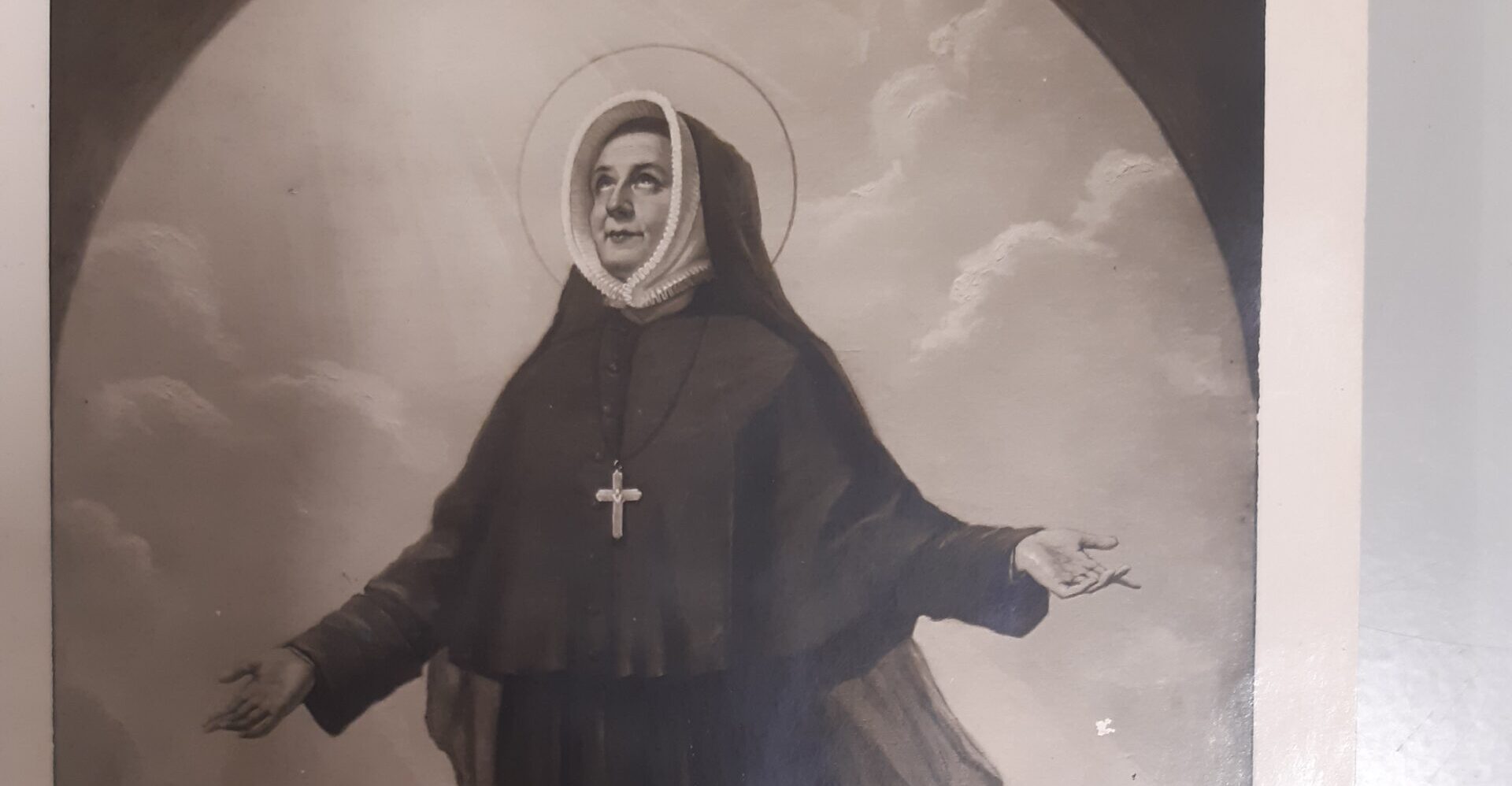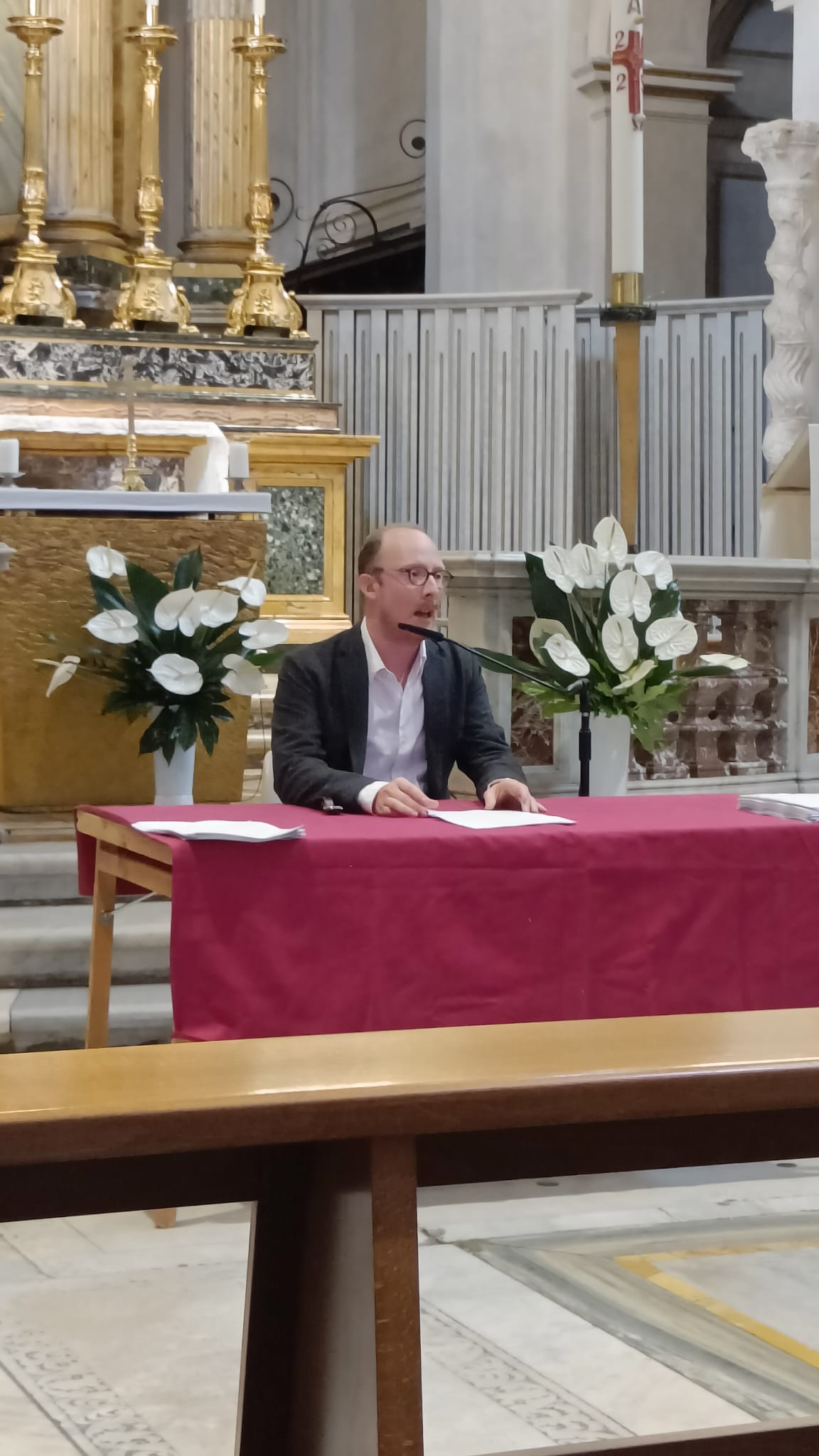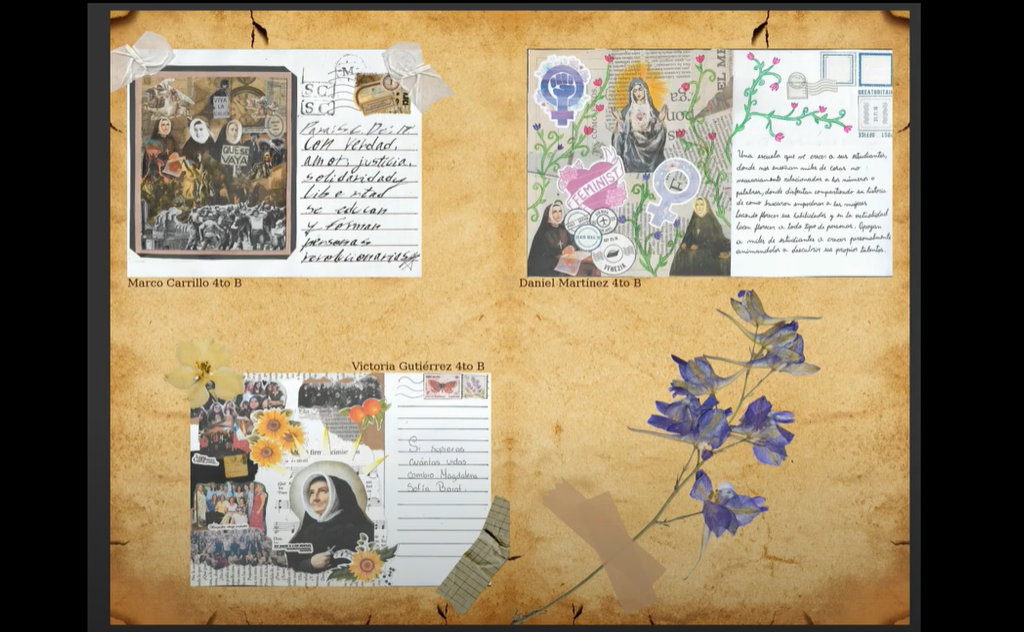In the course of her long life Sophie Barat experienced several waves of epidemics which affected the communities and the schools profoundly. Cholera was a prevalent and recurring epidemic and it caused thousands of deaths worldwide. It was a slow burning disease which migrated slowly and then erupted intensely, at different moments in different countries. The cholera which struck Paris in 1832 originated in India in 1816, then moved to China, to Russia, to Poland and jumped to England. France hoped it would be spared, but the disease struck the city of Paris in 1832 and spread throughout the country. In Paris alone 20,000 died. In the whole of France 100,000 died. In time that disease migrated to north America and to Canada and returned to Europe. Cholera struck the city of Rome in 1836 while Sophie was staying at the Villa Lante. Displaying how haphazardly it spread, the Villa Lante was not struck by cholera but the community and students of the Trinité des Monts, just across the Tiber, were hit badly by the disease. Several religious and students died.
These are but two examples. Sophie Barat showed inventiveness and mobility when dealing with epidemics, and her practical insight led her to take decisions quickly. This is clear from her circular letters to the Society, in her personal letters to leaders, as well as in her letters to bursars, to those in charge of kitchens, laundry, housecleaning, the infirmaries and the farms. Her most frequently expressed wish was that leaders of the communities and schools would take serious preventive measures to safeguard the health of communities and students. She asked that the quality of food and of proper rest be carefully watched, and she specifically named the basic foods which should be of high quality and provided to the cooks in every kitchen. In this way those in the communities and the students in the schools could be protected from colds and fevers which made them vulnerable to the impact of epidemics. She also urged that the opinion of reputable doctors be sought on a regular basis. Yet many died and this caused her immense sorrow. Other diseases of epidemic proportions also occurred in Sophie’s lifetime, among them smallpox (which she had as a child), malaria and diphtheria. However, the disease which struck the Society most, and probably more than cholera, was tuberculosis, also known as the ‘White Plague’. It was easily transmitted by coughs and sneezing, and killed many young religious and students.
Closely linked to the Society’s experience of epidemics were the series of on-going wars in Europe, from the French Revolution in 1789 to revolutions in 1830, 1848, 1860. These also disrupted the life of the communities and schools, to the extent that schools had to be closed temporarily and communities dispersed. In wars schools and community accommodation were sometimes taken over as hospitals for the military. Anticipating this, and to protect the community and school, during the 1848 Revolution in Paris, Sophie Barat offered to care for wounded soldiers in the Hôtel Biron, on the rue de Varenne and so neatly avoided having the building requisitioned and looted. Society administration also suffered. General Councils had to be postponed, sometimes for several years, and certainly between 1842 and 1851, and 1860-1864. Finally, in the wake of epidemics, wars and revolutions, many women in the Society suffered severe traumas and some never fully recovered. Some had severe breakdowns and Sophie had to find sanatoriums or asylums suitable for them, always hoping these religious could return to their communities. And some did, to her great comfort.
Details of all these issues are recorded in Sophie Barat’s 14,000 original letters, held in the General Archives of the Society of the Sacred Heart, Villa Lante, Rome. Also held there are community letters, journals and registers, school journals and registers, death notices and medical records.
Section |History
Province |Ireland/Scotland



